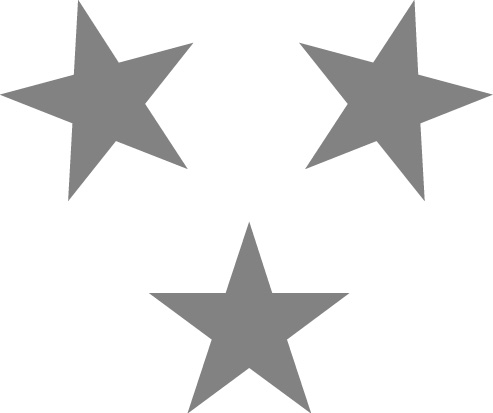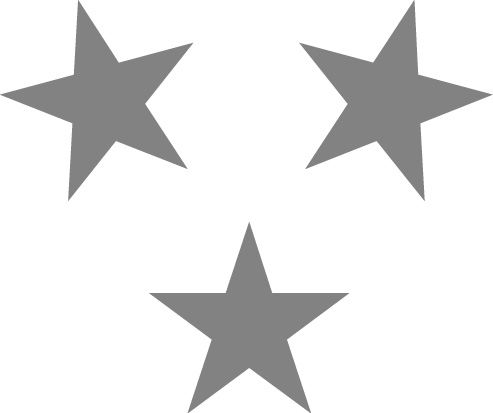
WOMEN ON THE LOOSE
SUE MONK KIDD
on a wall in my house. At the top of the stairs, where you couldn’t possibly miss it, I painted a quotation by French novelist Emile Zola: “If you ask me what I came to do in this world, I, an artist, will answer you, ‘I am here to live out loud.’ ”
Every day I would pause and read the words and try to take them in. What did it mean to live out loud? Did I have the courage? If so, what sort of reverberation did I hope to make out there in the world?
One day, as I read the quotation for at least the hundredth time, instead of the word artist, I spontaneously, without reason or forethought, substituted the word woman: I, a woman, will answer you, “I am here to live out loud.” I stood there a moment, the tiniest bit electrified, as the words seemed to do a double flip off the wall. Imagine: women—not just artists or people with public platforms—but women, all of us, living out loud!
Today, that vision is becoming increasingly realized, and yet women still remain the largest untapped resource on the planet. It’s never been more apparent to me that the plights and problems in our world cannot be solved without the power and presence of the Feminine. Women’s out-loudness is more than an alluring vision. It’s an indispensable ethic.
was a thirty-year-old with two toddlers, a little brick house, a husband, a dog, and a big, untamed yearning lodged in the center of my chest. I wanted to write words that would find their way into the world. I had a degree in nursing. I knew nothing about being a writer, the craft of writing, or where to begin. All I had was the big hungry thing in my heart.
And fear. I had a lot of that. What if I couldn’t do it? What if I fell flat on my face? What if…what if? I finally got sick of hearing myself. I have a postcard that sits on my desk with a quotation by Charlotte Brontë: “I’m just going to write because I cannot help it.” I made my way to the edge of becoming—to that place where the desire to pursue one’s passion becomes greater than one’s fear of failure—because I couldn’t help myself.
Leaping was involved, as when the trapeze artist turns herself loose of her trapeze bar and pivots, turning in midair, suspended on nothing but her own audacity, and reaches out for the bar she hopes is swinging toward her. I don’t know why writing words and sending them into the world felt like I was risking my neck, but that’s how it was. When it comes to out-loudness, that’s often the case.
I had to face down insidious voices in my head that told me I shouldn’t write because it was too big a risk, because I already had a perfectly good career, plus when would I have time? Besides, I couldn’t do it because I had no MFA or experience and most everyone thought it was an outlandish enterprise. There they were, the sinister twins—Don’t and Can’t. I patched together my courage. I took a hundred deep breaths. I told myself: If you’re going to err, Sue, you might as well do it on the side of audacity.
The poet David Whyte wrote a line that feels deeply true to me: “Revelation must be terrible knowing you can never hide your voice again.” Living out loud is both terrible and beautiful. It’s terrible because there’s a vulnerability to it. It’s beautiful because there’s a vulnerability to it. It’s much safer and nicer and innocuous to remain unseen and silent. But in this way we close ourselves off from the world, and possibly from our own deep selves.
As a novice, Twyla Tharp, the great American dancer and choreographer, was stymied when faced with composing one of her earliest dances, so she stood on the stage, stamped her foot, and shouted, “Begin!” To this day, that’s how her dance “The Fugue” starts, with the stamp of a foot. She wrote, “Just begin and worry about the consequences later.”
I simply began.
I realized I just wanted to write because I cannot help it. Please, substitute anything you would like for the word write. It could be: I just want to start a book club at a women’s shelter because I cannot help it. I just want to teach girls self-esteem because I cannot help it. I just want collect bottle caps and make art with them…I just want to create a dream group…I just want to march for racial justice…I just want to play the cello…I just want to run for Congress…I just want to promote sustainable food programs…I just want to sew bibs for baby girls that say “When I grow up I want to be president.” (That latter want-to belongs to my ninety-eight-year-old mother.) There are as many possibilities to live out loud as there are people. They are all deserving of a chance.
doesn’t mean you go out there and make noise, any noise. It means expressing the genuine sound in your heart. I’m of the opinion that every woman possesses a capacity, a passion, or a spark that’s meant not only for herself but for the world around her as well. I like to call this spark her particular genius.
What if genius isn’t rare but accessible? Merriam-Webster defines genius as: “1. a person who has a level of talent or intelligence that is very rare or remarkable; 2. a person who is very good at doing something; 3. great natural ability.”
We’ve come to identify genius almost exclusively with the first definition. Most people seem to think it belongs to a small, elite group of men. The Einsteins, the Mozarts. I stumbled upon a list on the internet titled the “Top 50 Geniuses of All Time.” The first time I read it, I found no women. That couldn’t be right. I read it again. Still no women. I tried another list labeled “Greatest Minds of All Time,” which ranked one hundred geniuses. Marie Curie made it. One woman, ninety-nine men.
If you want to find women geniuses on the internet, it helps to search “women geniuses.” Apparently there are geniuses and then there are women geniuses. I speculated that maybe I was being overly sensitive, but when I typed “women genius” into the search bar, I was prompted: “Did you mean women genius or Female Genius band?” I persisted—yes, I actually meant “women genius.” Then a little box popped up and I was informed that people who search for “women geniuses” also search for “smart blond actresses.” You would think I’m making this up, but I swear the truth of it on my dog’s life. Still, I persisted, and it turns out there are so many geniuses of the female persuasion in the history of the world, I thought my heart would crack open with the joy of reading their names. Some names I’d never before heard. Names I should have heard.
I’m for demystifying the word genius, for making it user-friendly. Therefore, let’s go with the second aspect of the definition: a person who is very good at doing something.
We each have a particular genius. The late novelist John Gardner called it our “necessary fire.” It’s an energy that lives within us at the intersection of imagination and feeling. The quest to discover it, and sometimes to rediscover it, often begins by noticing the places of combustion in our life, by simply observing what brings us alive, by paying attention to what fascinates us. The soul lures us through aliveness and fascination.
Sometimes, though, our particular genius is so hidden, forgotten, caged, shy, camouflaged, or neglected, it’s tempting to declare ourselves devoid of it. One way we know it’s there is through the restlessness it gives off.
Somewhere in my mid-forties, after more than a dozen years of writing memoir and nonfiction, I became restless. It was a vague feeling that seemed connected to my writing. During that strange, fidgety interlude, I traveled to Crete with a group of women, and while there we visited an ancient convent. In the center of the convent’s courtyard stood a centuries-old myrtle tree with a Black Madonna icon perched in its serpentine branches. A Greek Orthodox nun invited us to participate in a tradition of stepping beneath the branches and asking for “what lies at the bottom of our hearts.”
What lay at the bottom of my heart? I was sure I didn’t know, but as I stepped beneath the canopy of branches, I heard myself mutter, “I would like to become a novelist.” Somewhere inside I knew this about myself, but I’d never articulated it.
Now and then we have to ask the “bottom of the heart” question and see what wiggles to the surface. Occasionally we need to coax our particular genius to show itself.
By the time I returned home from Crete, my restlessness had been replaced with a sense of direction. I just want to write a novel because I can’t help myself.
Once again, I was a beginner, trying to find my way toward becoming good at something.
The Dance of the Dissident Daughter, I tell the story of thirty-five Norwegian women known as the kjerringsleppet, a word that roughly translates as “women on the loose.” The group formed back in 1989 after women were excluded from participating in the opening ceremony of Norway’s Alpine Center. Because only men were invited to ski ceremoniously down the slope, the thirty-five women banded together and waited in the woods until the appropriate moment, then shocked everyone by swooping out of the trees on their skis, clanging cowbells and crashing the ceremony. Norway loved it. The women even became a fond symbol, so much so that they were invited to open the giant slalom competition at the 1994 Winter Olympics in Lillehammer. The women on the loose had a motto: Improvise, surprise, and come uninvited.
When I think of women living out loud, I think of these women. Their out-loudness changed a set of beliefs about gender inclusion.
I’ve carried this vision with me for a long time now: Women ringing their big feminine cowbells. Women on the loose. Women imparting their genius to a world desperately in need of it.
We’re just going to do it because we cannot help it.


